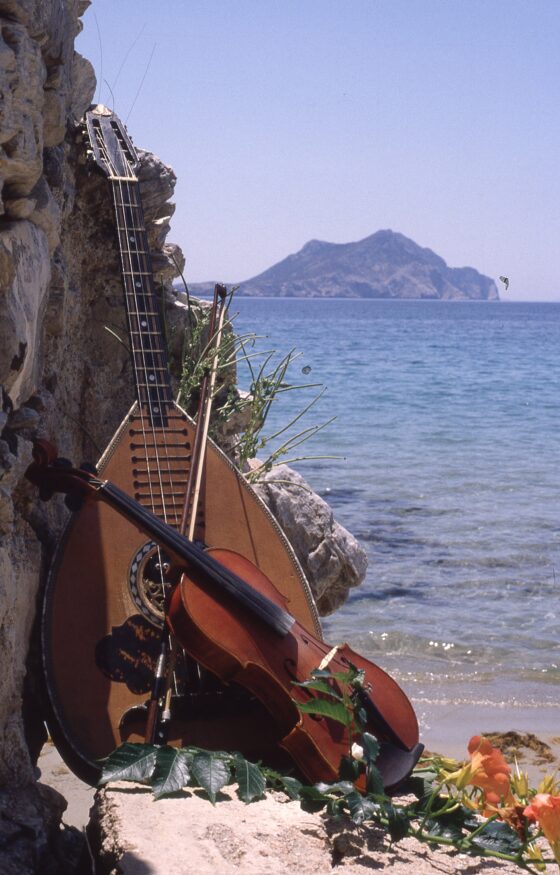
NAME: Demetrios (Demetrakis) Eksarhopoulos of (Uknown father’s name) and Sofia
PLACE OF BIRTH: Amorgos
PLACE OF DEATH: Amorgos
PLACE OF RESIDENCE: Amorgos
SPOUSE / MAIDEN NAME: Unknown / Unknown
PROFESSION: Farmer
Instrument: Folk Poet – Rhyme Improviser
The following biographical note on the folk poet Demetrios Eksarhopoulos was written by the Amorgian philologist – researcher Georgios A. Mavros. It was extracted from the archive of the latter which was granted in its entirety to the Digital Audiovisual Folk Music Archive of Amorgos and its Islands. The structure, the spelling, and the punctuation of the text in Greek have been preserved. The English translation has been mildly edited.
A folk poet, perhaps the most important of all and, in my opinion, the most accomplished. He comes from the well-known Eksarhopoulos family. He was born in Hora in a house of the family of Nikiphorakis, north-west of the Castle, whose ruins still survive, on the right of the road as we walk eastwards towards the house where Patriarch Parthenios III resided. He took part in the Balkan wars, reaching the rank of Lieutenant. When he returned to Katapola he became a Municipal Councillor, President and for many years Secretary of the Municipality. He self-educated and developed his innate gifts to a remarkable degree. He became a close friend of N. Kazantzakis when he came to Amorgos in 1925. The great Cretan writer deeply appreciated his spirit and talent and had correspondence with him which unfortunately has not survived. He also gave him his book “Ascetic” with a private inscription which, according to information, is preserved in the library of the family of Michael K. Kovaios. His main occupation was farming his few fields. He was a very lovable man and became immediately the centre of attention in the coffee shop. Without being particularly cheerful he had an unmistakable sense of humour. His poetic operation began with the observation of his fellow men. His themes were bad behaviour, laziness, arrogance, the sufferings of others and his own, exploitation. He did not write love poems. He simply sat in the coffee shop and observed. Then after dozing off for a while, he would pull his hat down to his eyes, give a sweet ironic smile and say: “come and let me tell you a rhyme I heard.” He never said it was his own poems. His hangouts were the “Teleion,” and the “Kioski,” and the Eucalyptus in the town square. He died at a fairly old age. His home was in what is now “Panemeboriki.”

